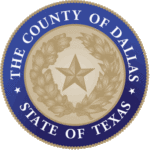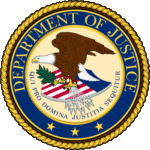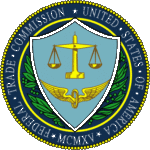Government Oversight & Consumer Protection Agencies Relevant to This Case
Corporate landlords today operate within an ecosystem of federal, state, and local oversight. Stuart v. Brookfield sits at the crossroads of housing law, consumer protection, federal contracting, and veteran protections.
Because HUD-VASH and Section 8 programs involve federal funds, federal contracts, and protected veterans, multiple agencies have clear jurisdiction over the type of misconduct alleged in this case.
Why Government Support Matters
Stuart v. Brookfield is not a simple landlord–tenant dispute. It involves:
- Federal housing dollars
- Federal HAP contracts
- Veterans protected under federal law
- Automated corporate billing systems that bypass government safeguards
Each agency below plays a legally recognized oversight role in preventing unlawful charges, deceptive practices, and retaliation — especially against veterans in subsidized housing.
Because the alleged misconduct spans corporate operations, onsite management, third-party billing vendors, and federal program compliance, several agencies are already involved or have regulatory authority to step in.
 U.S. Department of Housing and Urban Development (HUD)
U.S. Department of Housing and Urban Development (HUD)
HUD is responsible for ensuring fair, accurate, and lawful administration of the Housing Choice Voucher (Section 8) program.
HUD:
- Administers Section 8/HUD-VASH
- Supervises local housing authorities
- Enforces rent-to-owner limits
- Requires accurate billing, accounting, and compliance with the HAP contract
Why this matters here:
Brookfield’s alleged conduct — overbilling, unauthorized charges, attempted EFT withdrawals, and notices to vacate despite HAP payments — conflicts directly with the HUD Tenancy Addendum. Under federal law, HUD’s rules override any landlord-drafted lease provisions.
 Dallas County Housing Authority (DCHA)
Dallas County Housing Authority (DCHA)
Dallas County administers Section 8 and HUD-VASH locally.
DCHA:
- Verifies rent and tenant portion
- Issues HAP payments
- Ensures landlords follow federal law
- Investigates irregularities and payment disputes
Why this matters here:
DCHA documented conflicting balances, missing payments, and a notice to vacate issued after the landlord had already cashed the county’s payment. These official emails serve as evidence of a potential compliance failure.
 U.S. Department of Veterans Affairs (VA)
U.S. Department of Veterans Affairs (VA)
The VA co-administers HUD-VASH, ensuring housing stability for vulnerable and disabled veterans.
The VA’s role includes:
- Protecting veterans from unlawful displacement
- Coordinating HAP documents
- Intervening when a landlord jeopardizes a veteran’s federal housing
Why this matters here:
VA caseworkers first identified that multiple veterans at the same Brookfield property were experiencing identical billing errors, suggesting a wider pattern rather than an isolated mistake.
 U.S. Department of Justice (DOJ)
U.S. Department of Justice (DOJ)
DOJ enforces:
- Federal civil rights laws
- Antitrust laws
- Consumer protection statutes
- Restrictions on deceptive corporate practices
DOJ is currently litigating cases involving corporate landlords and automated rent/billing algorithms that distort pricing — the same type of proptech ecosystem used by BILT Technologies.
Why this matters here:
Evidence of automated billing manipulation in this case mirrors DOJ’s national investigations into proptech-driven overcharging schemes.
 Texas Attorney General – Consumer Protection Division
Texas Attorney General – Consumer Protection Division
The Texas AG enforces the Texas Deceptive Trade Practices Act (DTPA) and state consumer protection laws, including:
- False, misleading, or deceptive practices
- Fraudulent or fabricated charges
- Improper debt collection
- Unauthorized electronic withdrawals
Why this matters here:
Backdated fees, altered ledgers, and attempted unauthorized EFT withdrawals fall squarely under DTPA prohibitions.
 Federal Trade Commission (FTC)
Federal Trade Commission (FTC)
The FTC protects against unfair or deceptive business practices, especially in digital and automated environments. It investigates:
- Predatory billing
- Unfair automated systems
- Misleading online payment platforms
Why this matters here:
BILT Technologies, the automated payment vendor for Brookfield, operates in an industry already under scrutiny for deceptive automated billing practices.
 Consumer Financial Protection Bureau (CFPB)
Consumer Financial Protection Bureau (CFPB)
CFPB regulates financial transactions and consumer credit, including:
- EFT withdrawals
- Online billing portals
- Disputed charges
- Credit reporting
- Unfair, deceptive, or abusive acts (UDAAP)
Why this matters here:
Attempted unauthorized withdrawals and reporting fabricated balances to credit agencies fall directly under CFPB oversight.
Why Stuart v. Brookfield Properties Has National Significance
A Convergence of Issues Under National Scrutiny
This case combines:
- Section 8/HUD-VASH contract violations
- Veteran housing instability
- Automated billing failures
- Doctored or incomplete ledgers
- Backdated and fabricated fees
- Improper eviction and collection threats
These same issues are the subject of ongoing federal inquiries by HUD, DOJ, FTC, and CFPB.
Stuart v. Brookfield is therefore not just personal — it highlights a national oversight gap involving corporate landlords and automated billing systems.
It provides a real-world example of why reforms are needed to protect tenants, veterans, and housing programs from automated errors, predatory accounting, and system-wide corporate misconduct.
It also provides a potential roadmap for courts, regulators, and policymakers seeking stronger protections in the era of proptech-driven housing.
